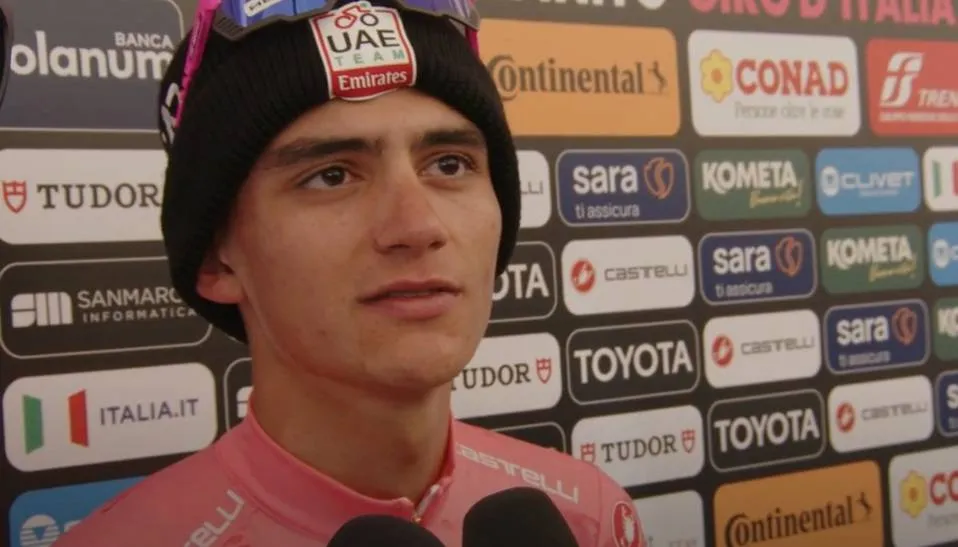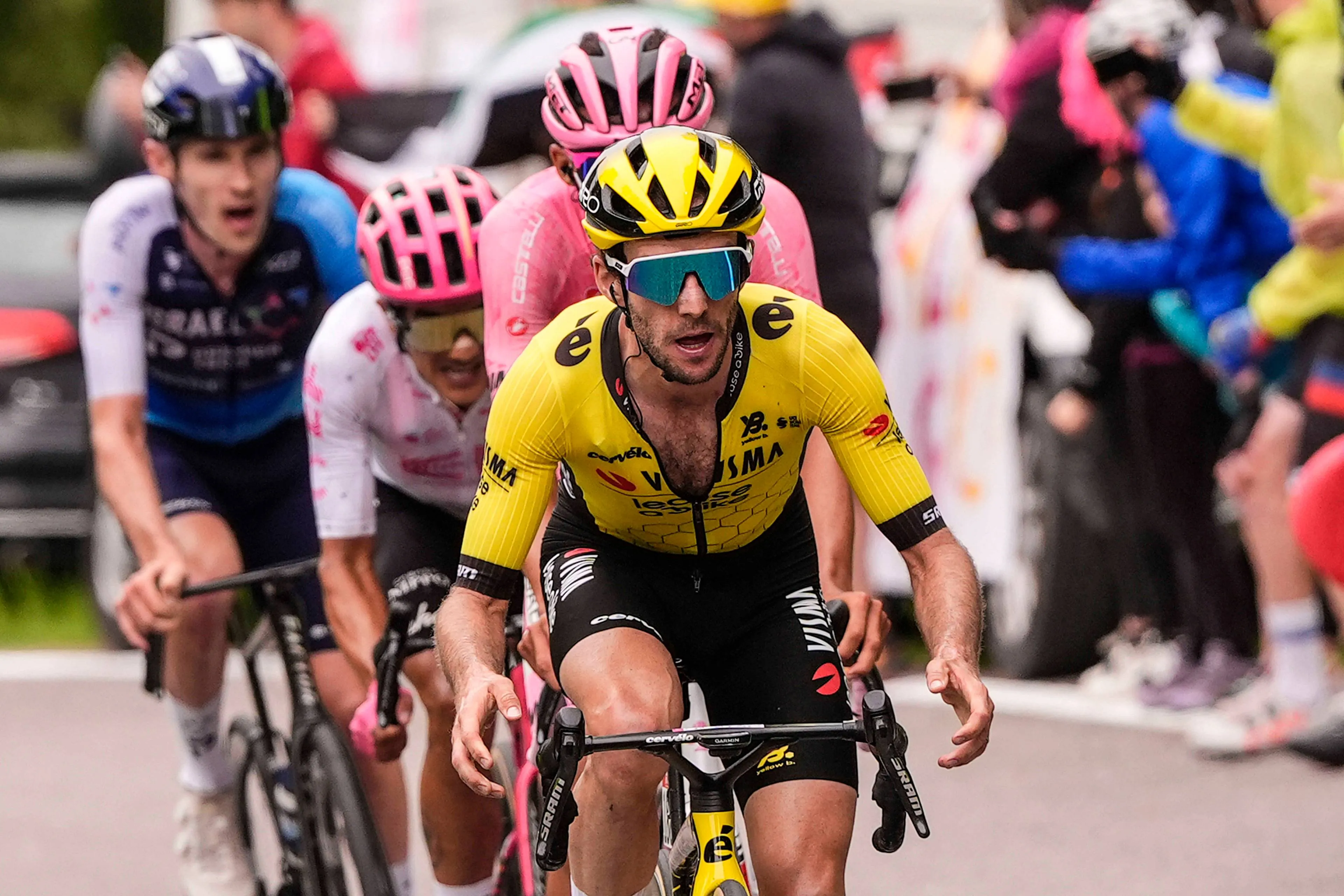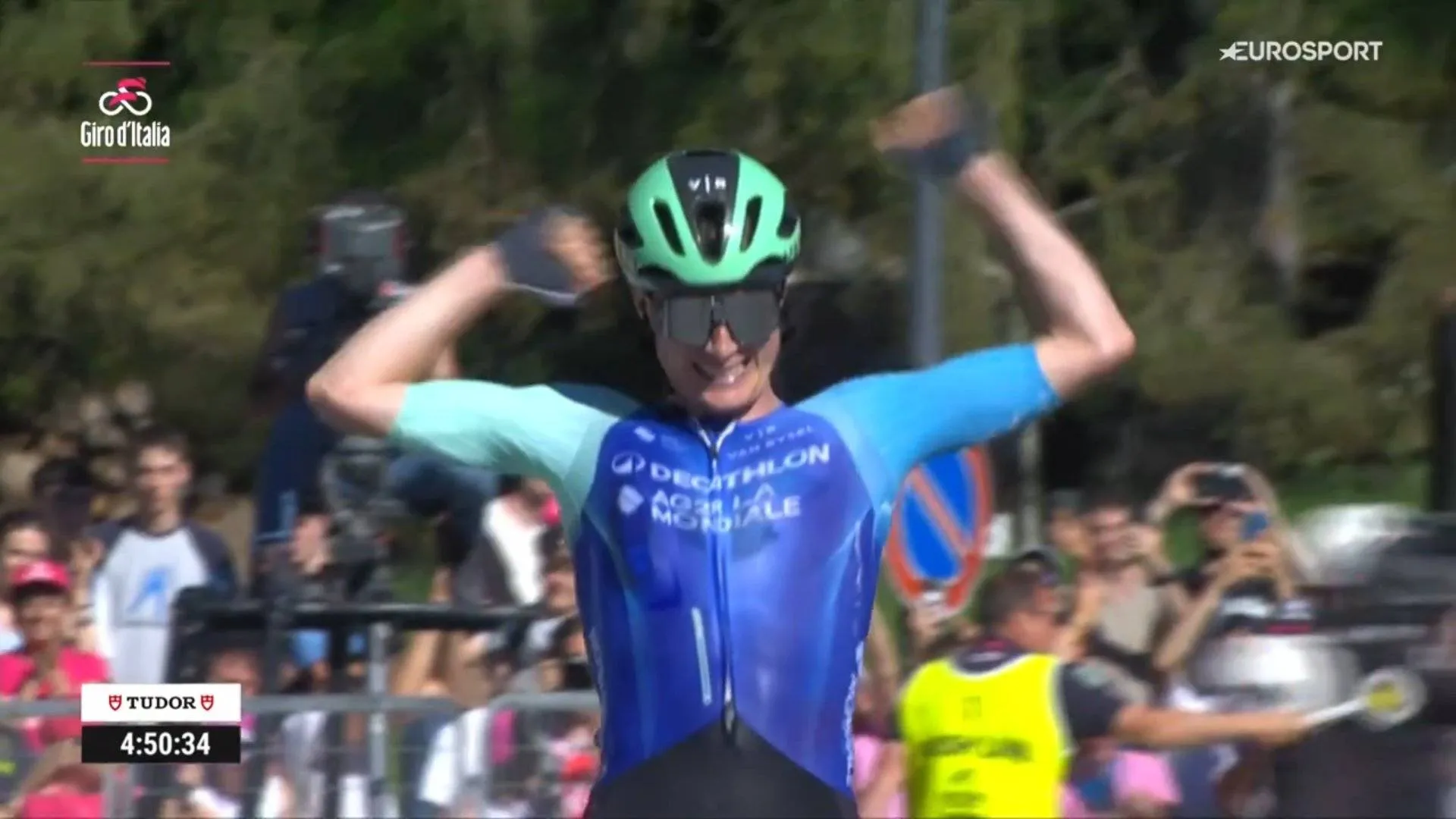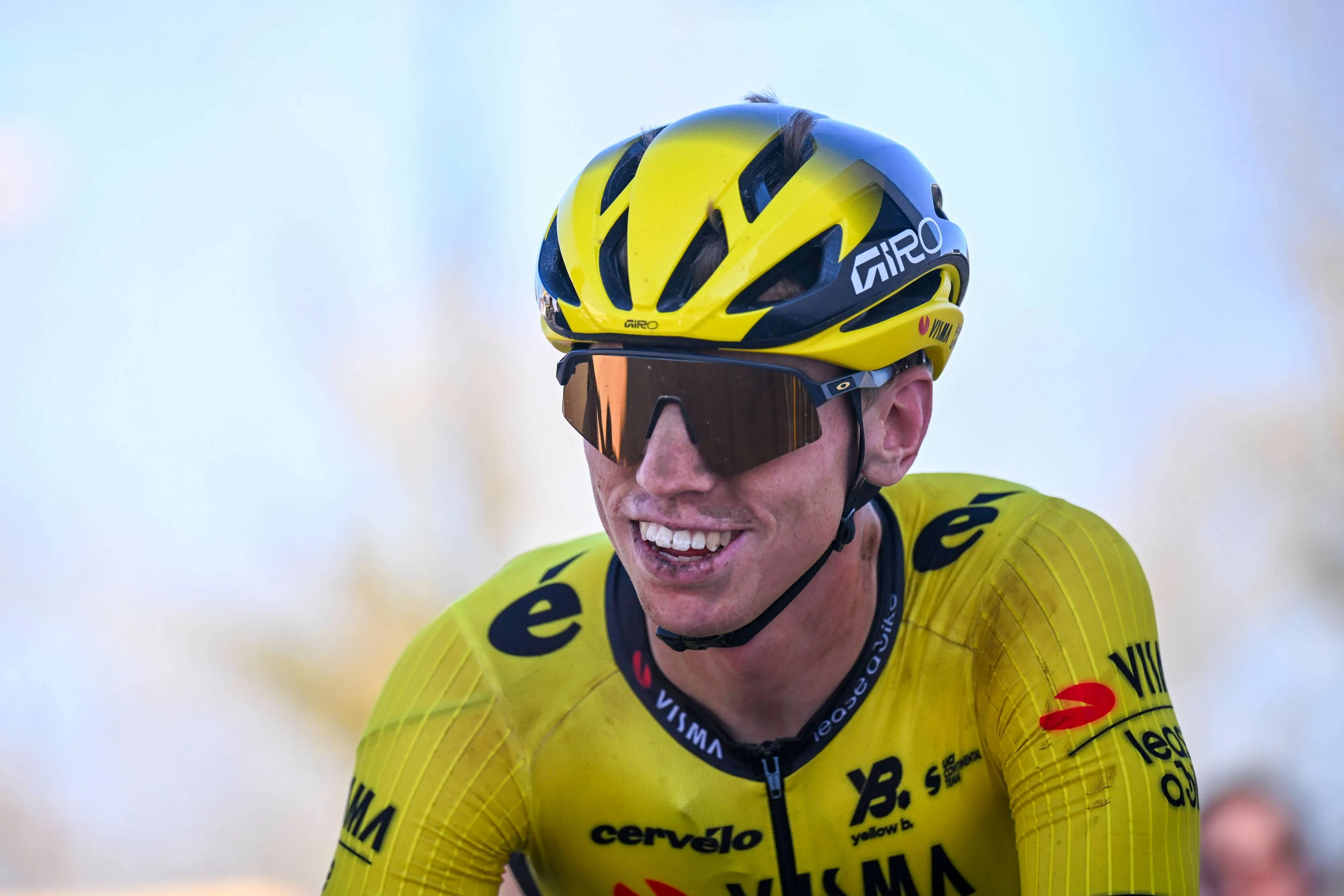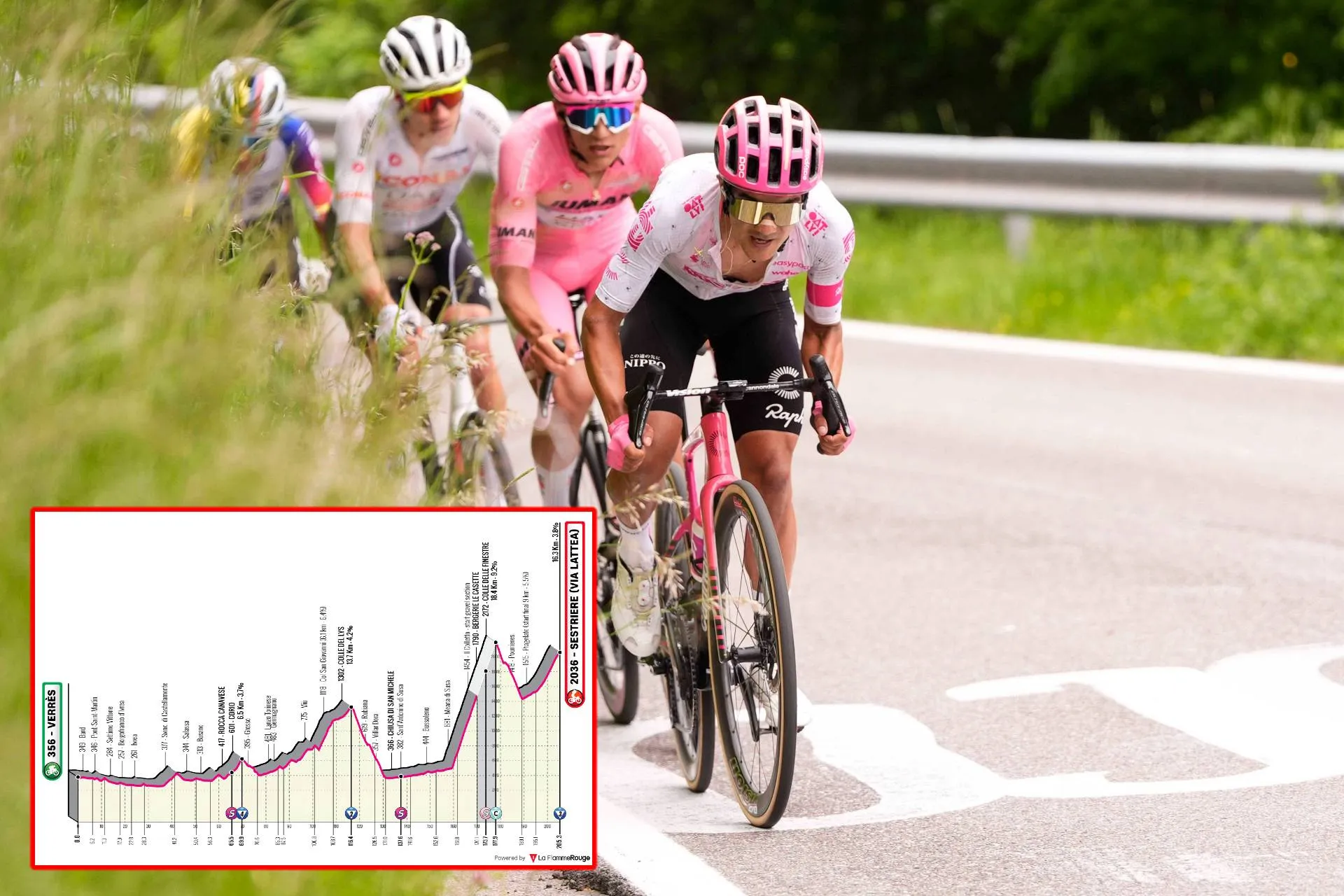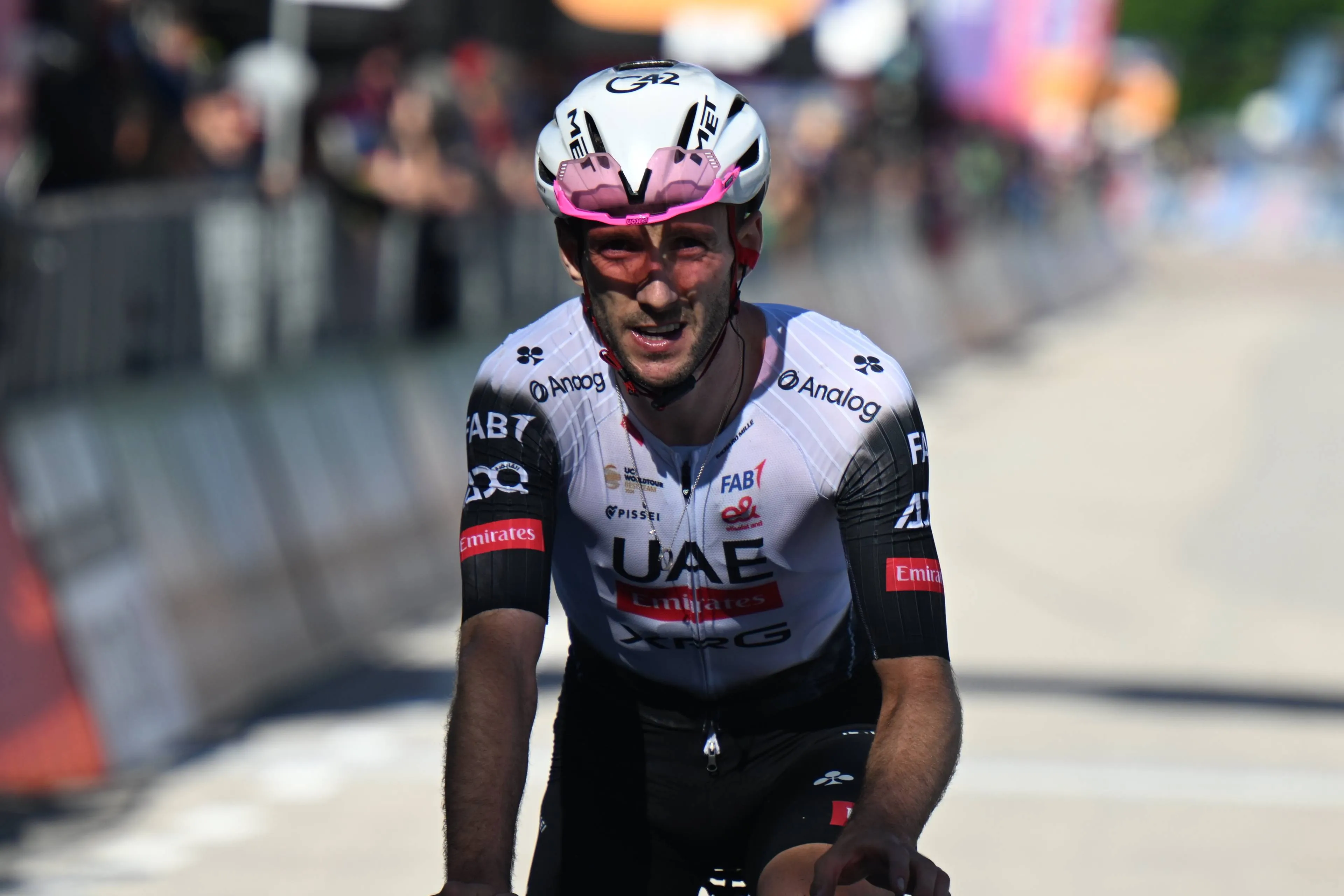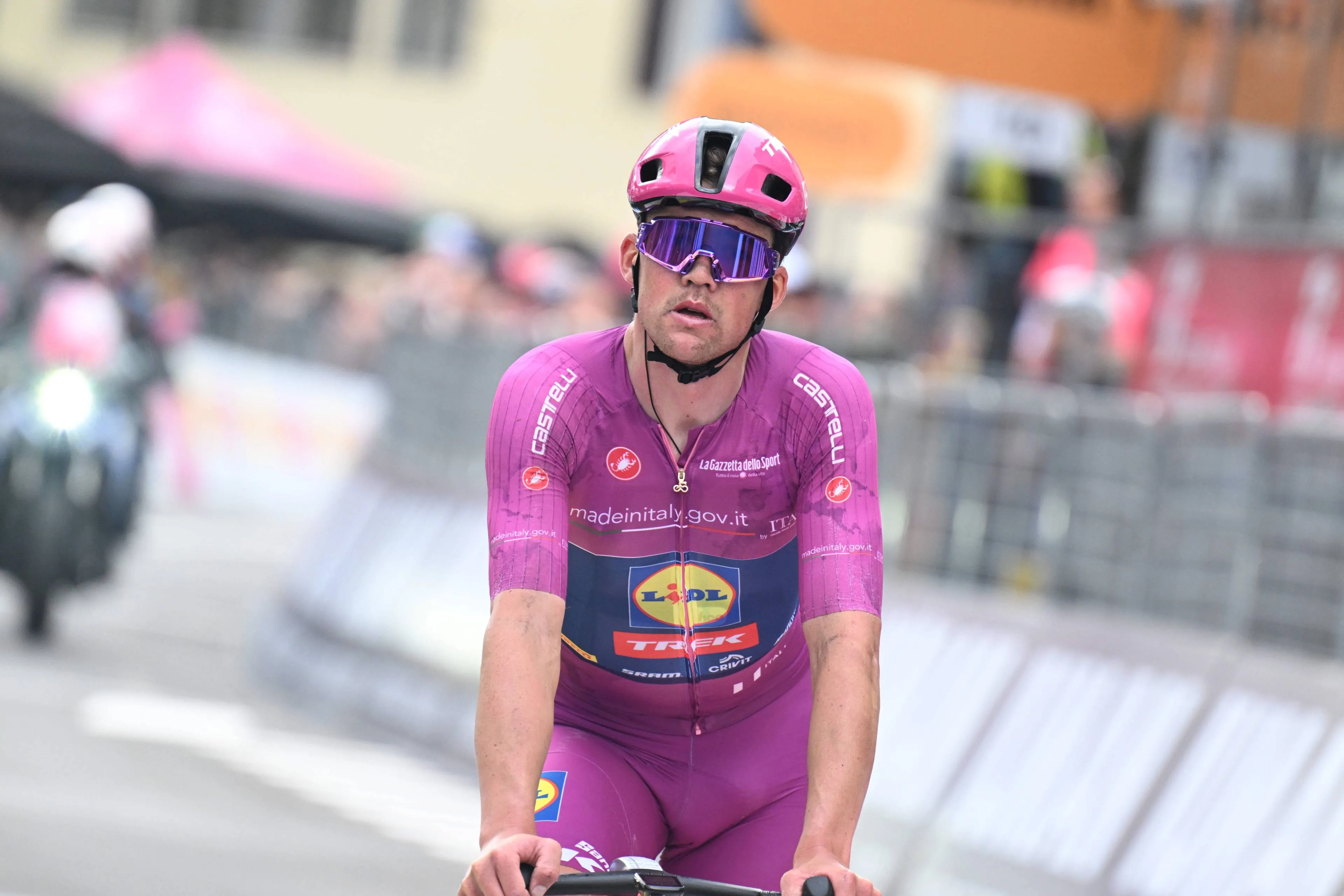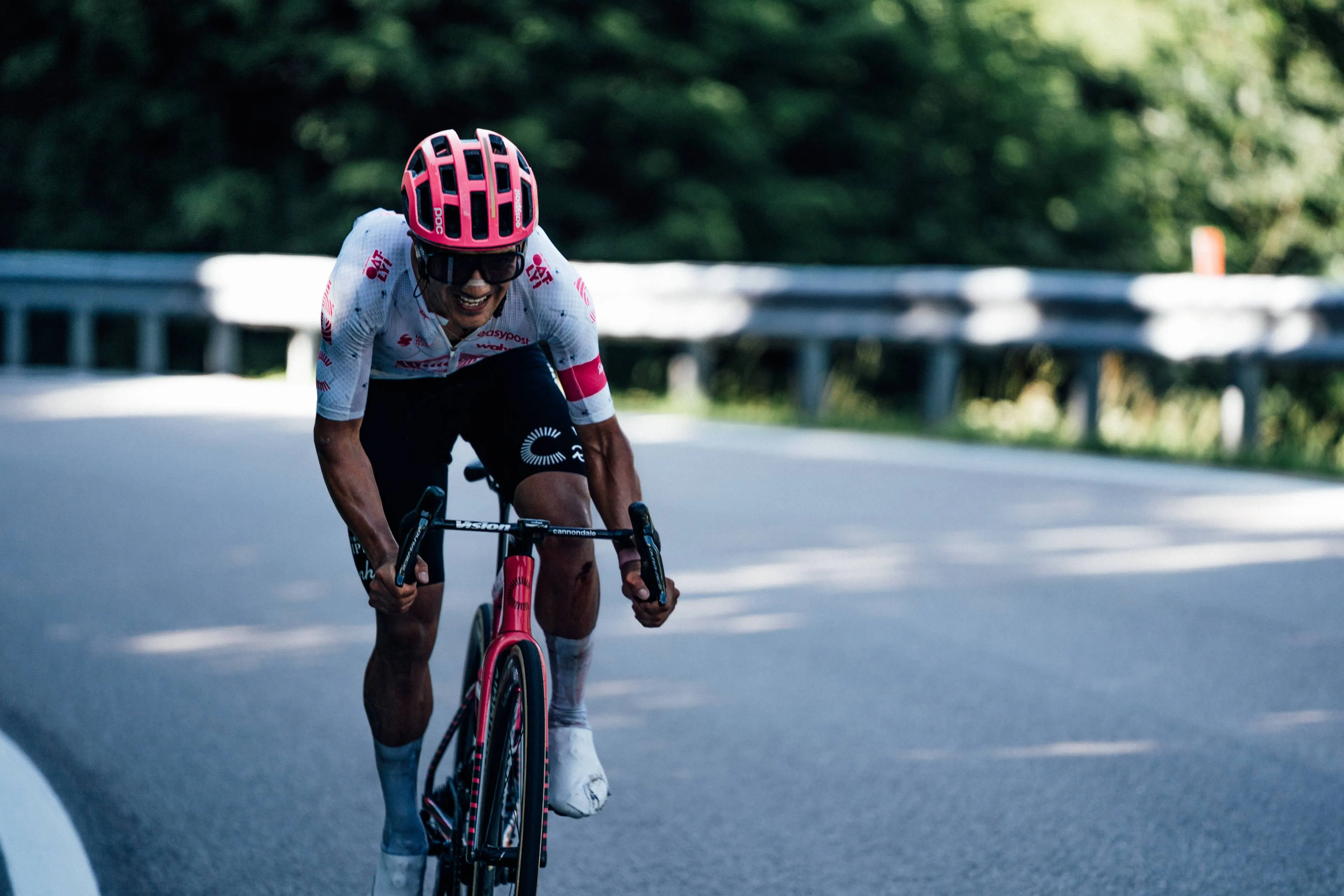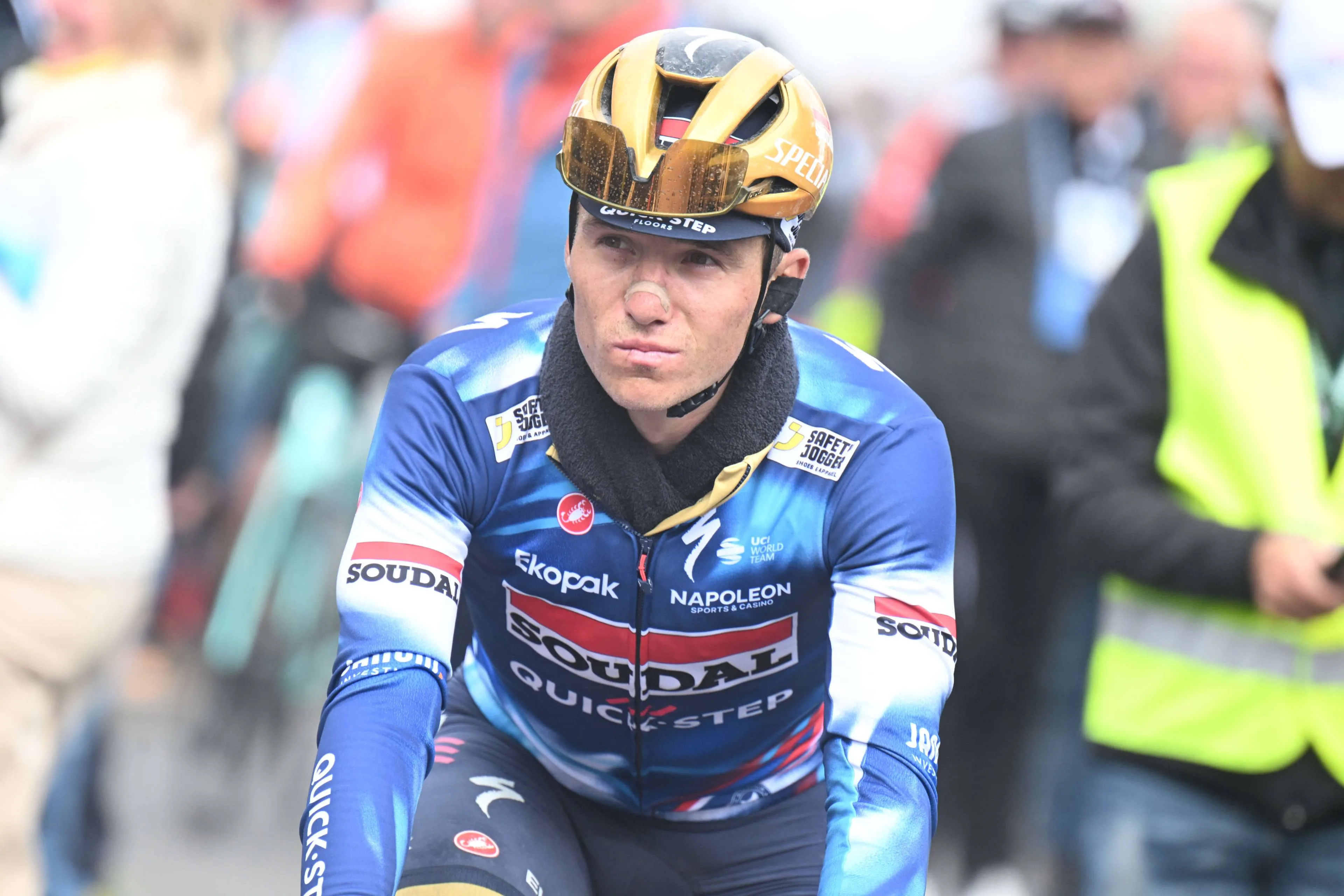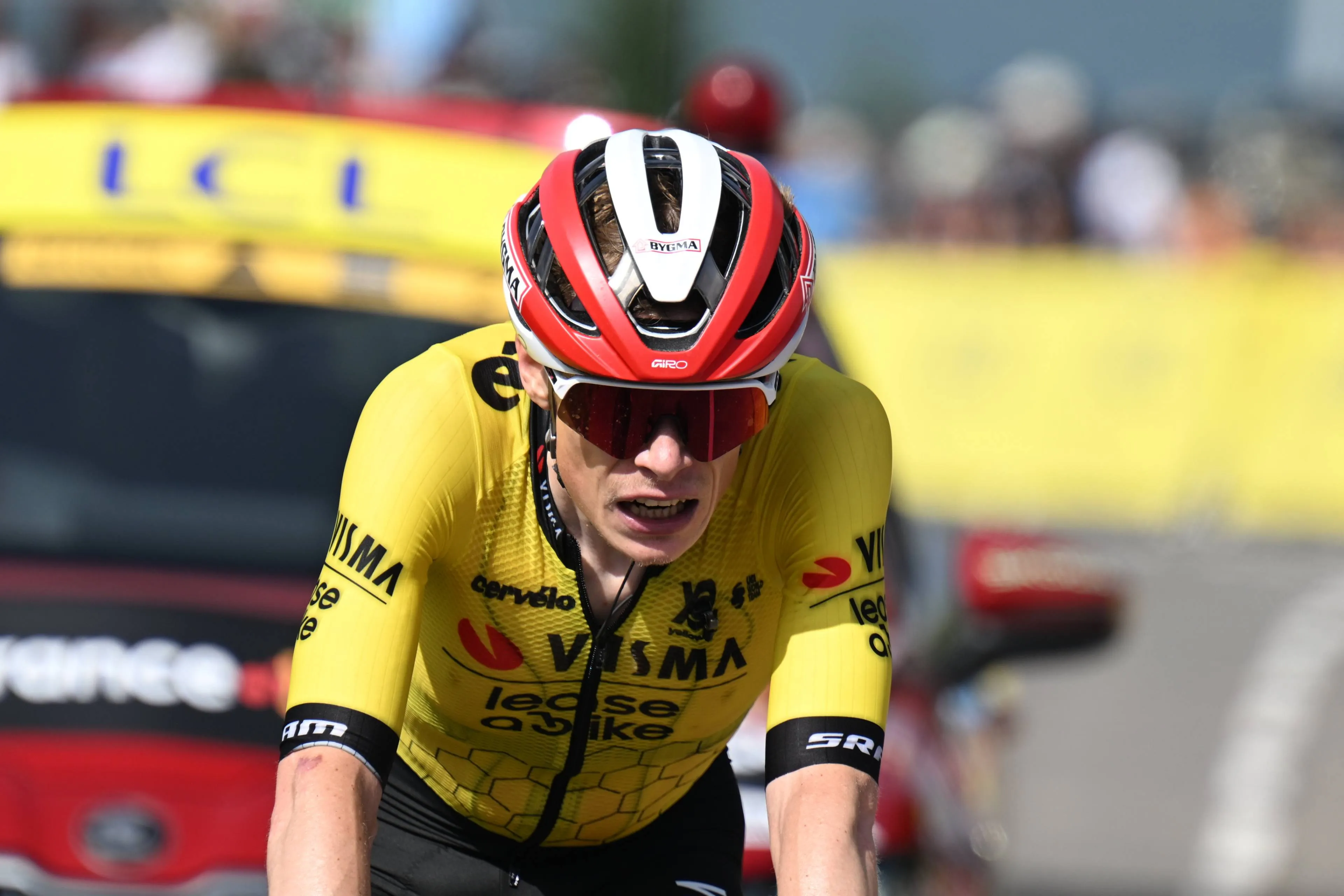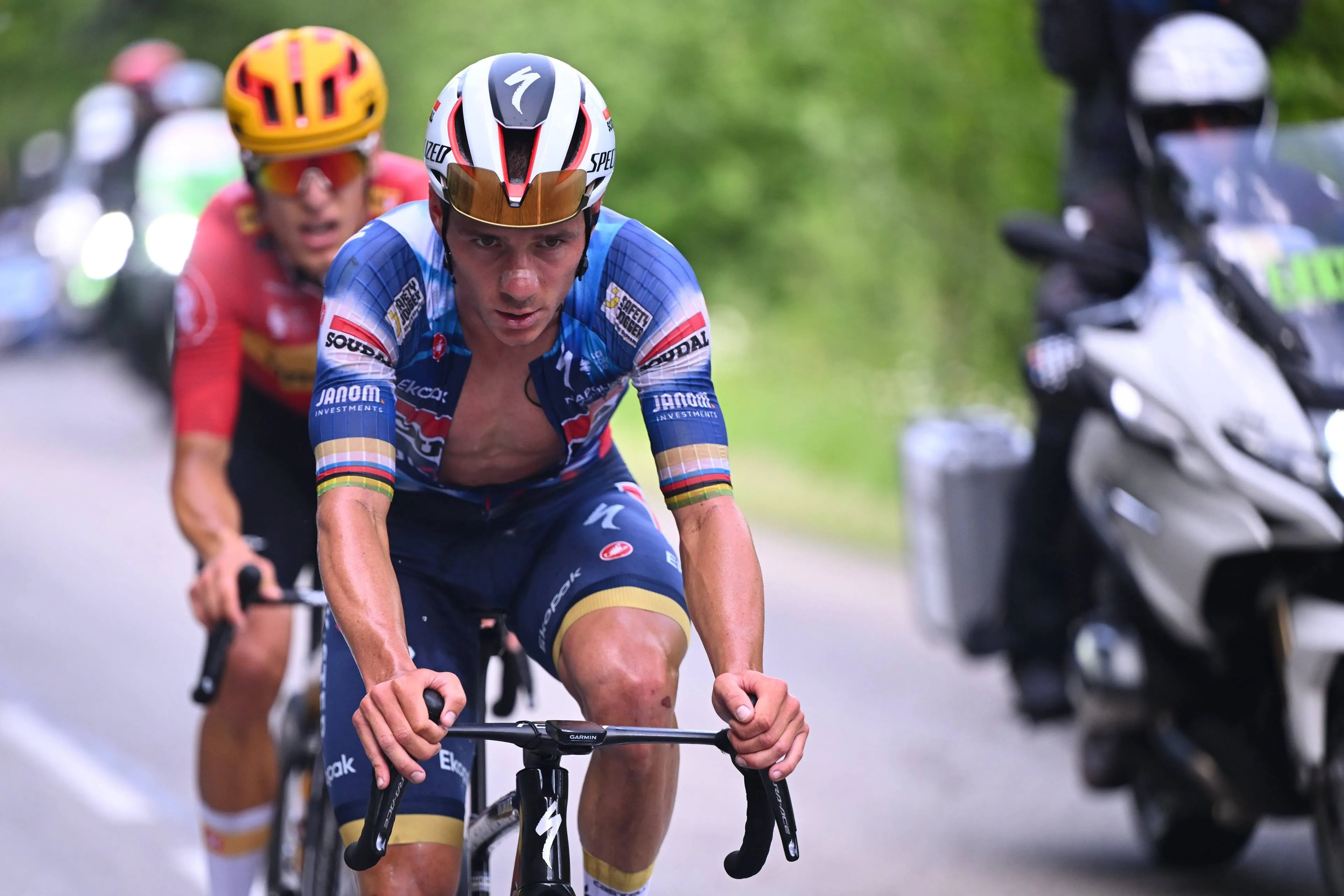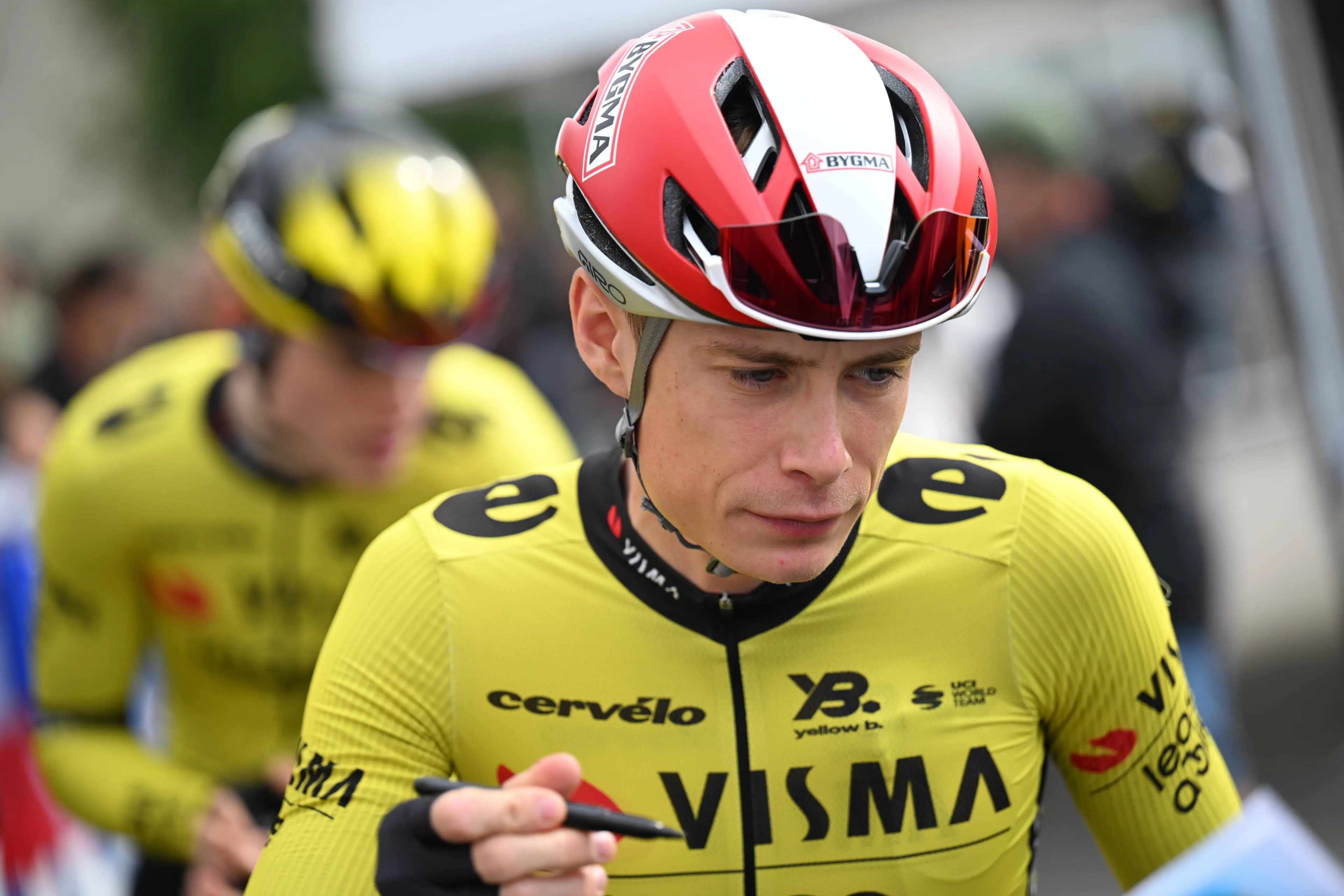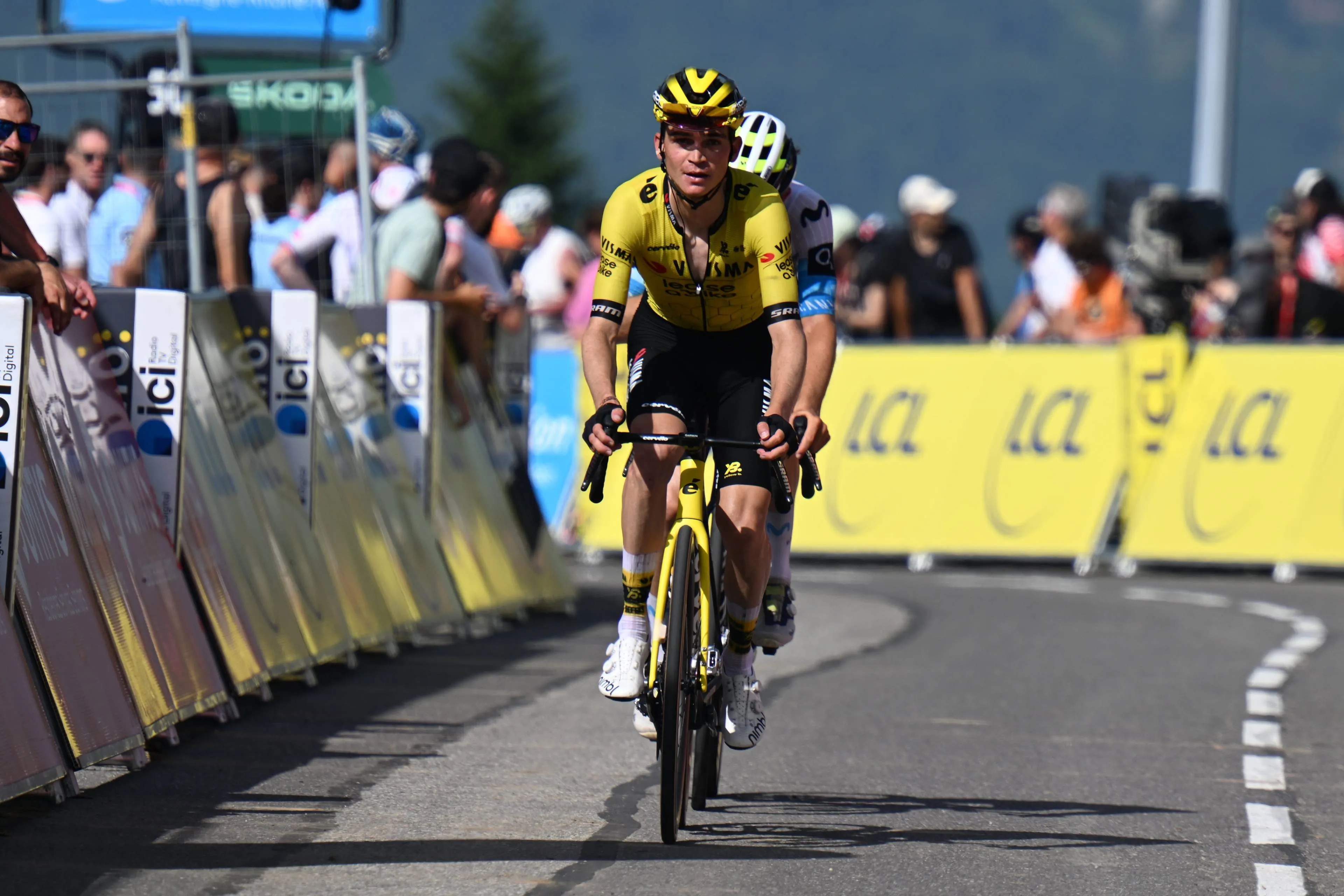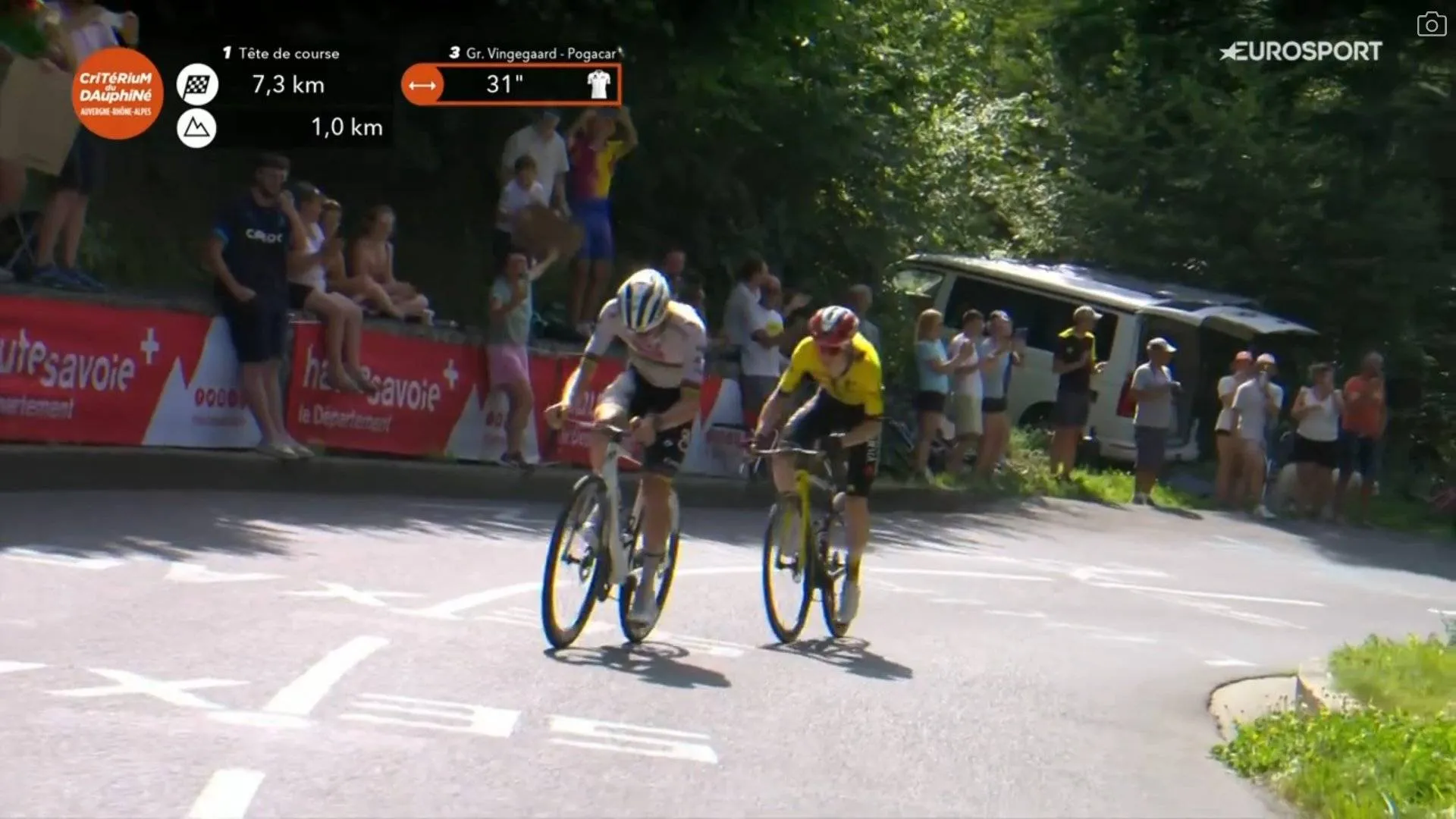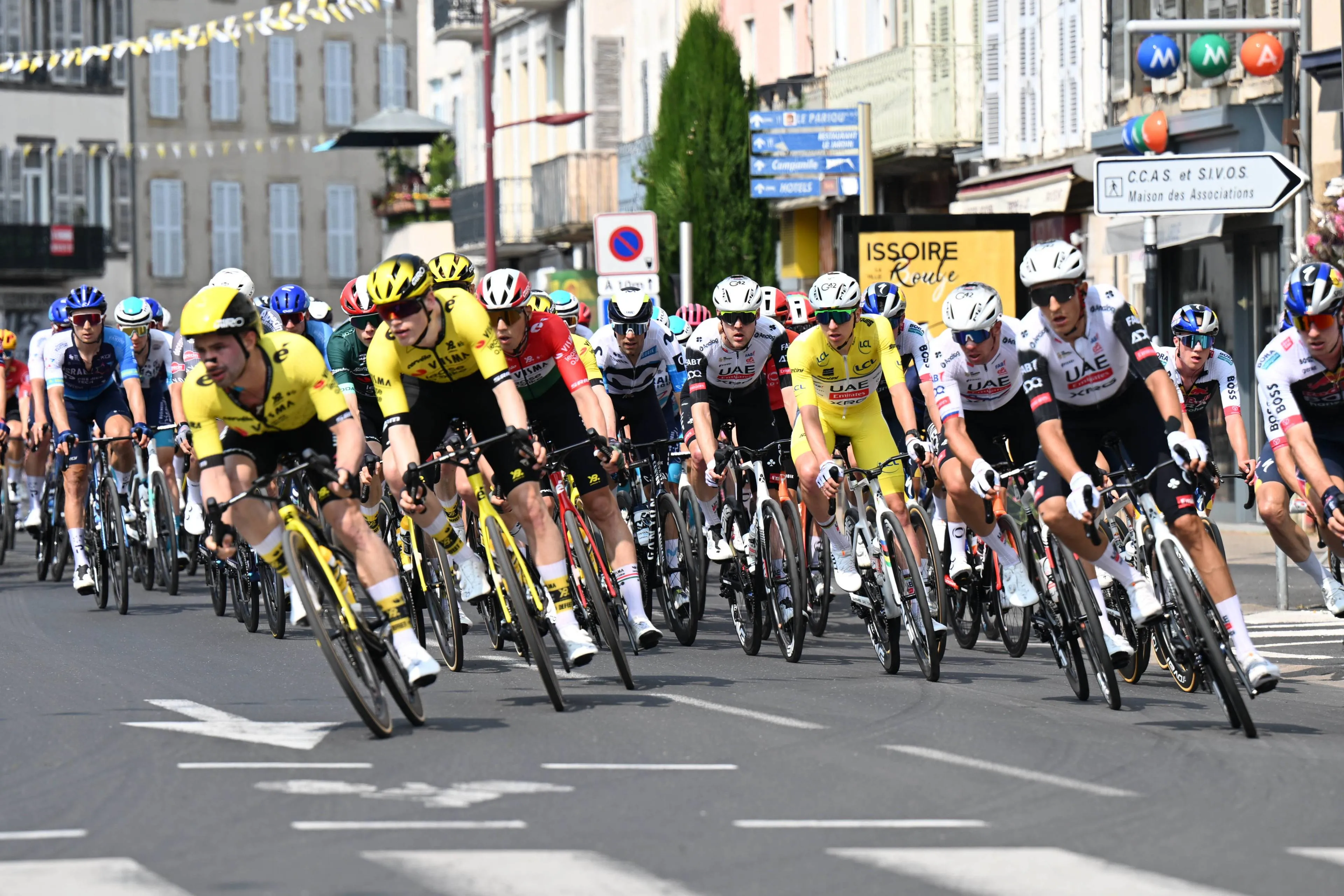OPINION | Has this Giro d’Italia proved that Tadej Pogacar makes races boring? Vote now!
CyclingFriday, 30 May 2025 at 20:00
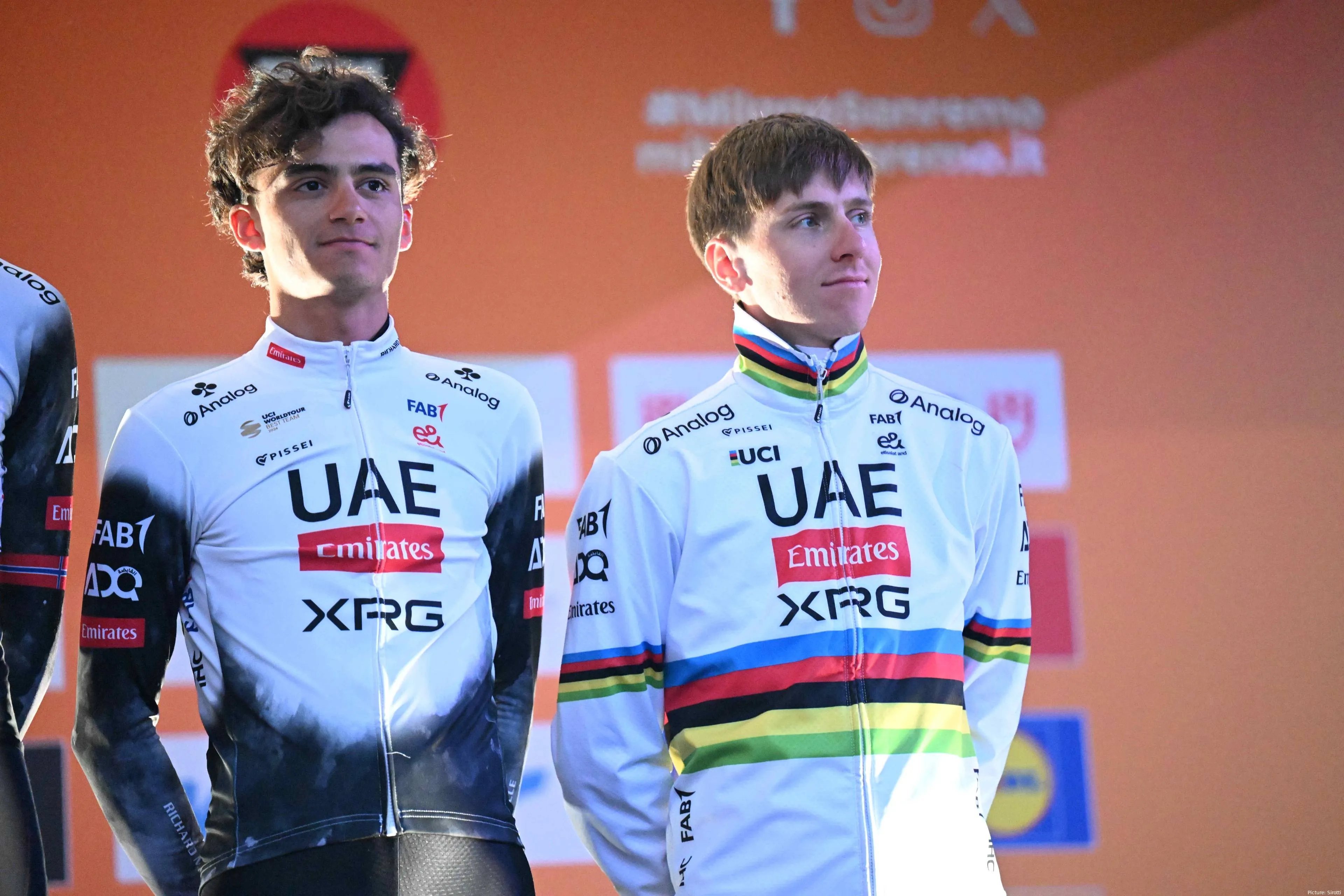
There’s a line that’s emerged among a certain group of
cycling fans over the last year: Tadej Pogacar makes racing boring.
If you had asked me two weeks, I would have told you it’s an
odd claim, especially when you take a moment to look at what the Slovenian has
actually achieved. In the past 12 months, Pogacar has done things most riders
can only dream of.
Pogacar has decimated WorldTour fields on every kind of
terrain: mountains, time trials, cobbles. He’s won Monuments and Grand Tours in
the same season. He’s now donning the rainbow stripes. He’s reclaimed the
yellow jersey from Jonas Vingegaard. He’s outgunned Mathieu van der Poel on the
cobbles of Flanders not once, but twice now. He even beat Remco Evenepoel, the
time trial world champion, in a stage 21 race against the clock at the Tour de
France.
Read also
So when people argued with me that Pogacar’s dominance is
“bad for the sport” or “makes races predictable,” I told them to take a step
back. Are we really watching the same rider? And more importantly, are we
really seeing boring racing?
As we edge towards the end of the 2025 Giro
d’Italia, it’s worth testing that idea, and I will admit that my opinion has
changed as the race has gone on. This is how I felt after week 1: for all the talk that this
year’s edition has been more open or more competitive, you could argue, that
it’s been missing something. Or rather, someone.
Of course, the first week was still a solid start to the
race. Mads Pedersen won three stages early on (and four in total) and had a
spell in pink. The Danish star was unbeatable in the reduced sprints and has
shown himself to be one of the truly elite riders in the world, he really has
been sensational this Giro.
Read also
Other than Pedersen, the first week was, in my view,
was…fine. There were good moments, yes, but it was by no means as exciting as
the first weeks of recent editions of the Tour de France. That’s why, after
week 1, I felt that whilst the race had been solid, it was proving that it is
not Tadej Pogacar who makes races boring, and that we had gotten to used to his
excellence.
Things changed on stage 9, the gravel mini Strade Bianche
stage. Now this, was one of the greatest grand tour stages I have witnessed in
my time watching professional cycling. To begin with, I thought it was going to
be Tom Pidcock’s day. Then, he and Primoz Roglic crashed, and suddenly it was
the INEOS Grenadiers, namely the returning Egan Bernal, who started lighting up
the race.
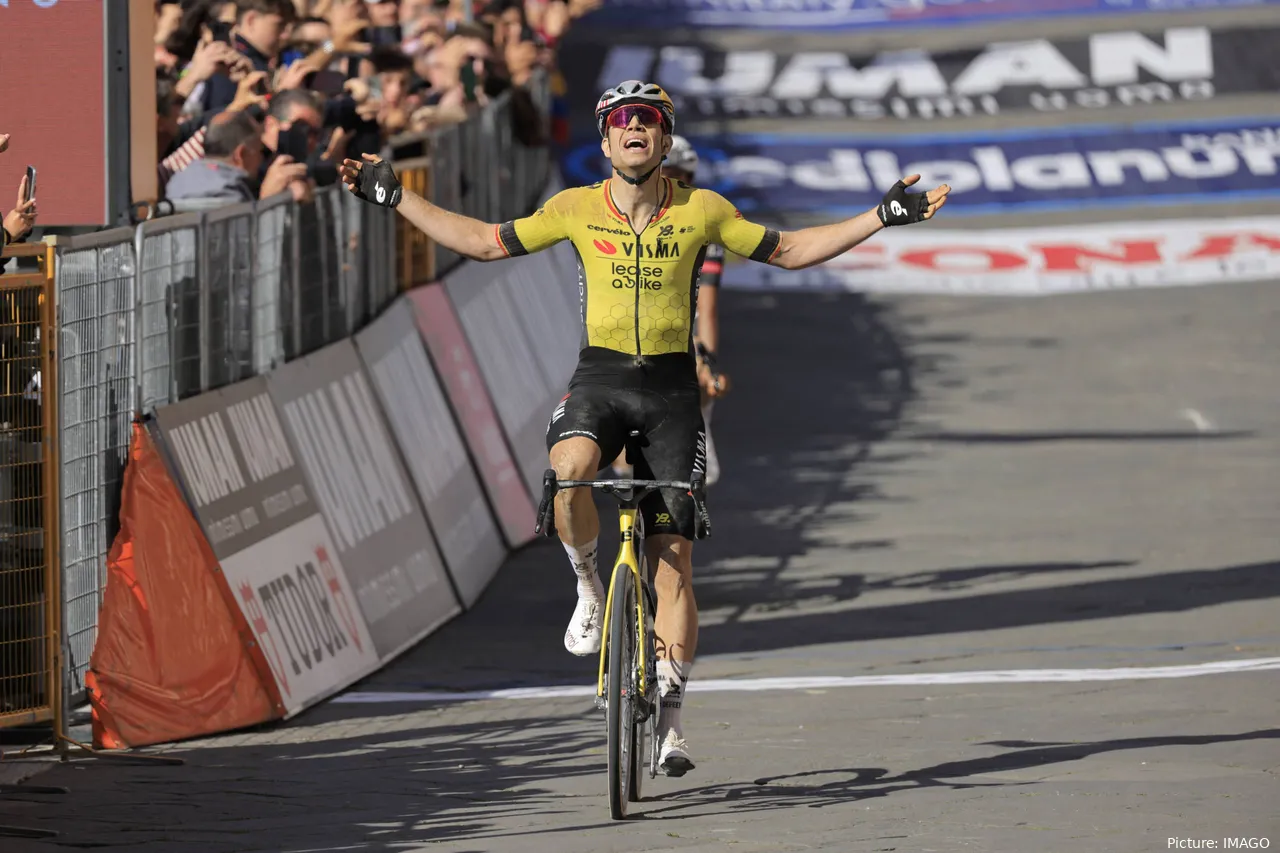
Was van Aert's win on stage 9 the highlight of the Giro d'Italia?
Even though Bernal eventually cracked, just seeing him back
to his best is a highlight for me. Overall, the true story of stage 9 was
Wout van Aert’s emotional win in Siena, and boy was it good to see the Belgian
back winning races.
Of course, the Tour had its own gravel stage in 2024, where
both Evenepoel and Pogacar attacked and Vingegaard managed to survive despite a
puncture. Exciting? Yes. But better than the Giro gravel stage? Absolutely not!
Still, if you asked me after stage 9 was the race ‘better’
without Pogacar, as well as Vingegaard and Evenepoel, I would have said no.
But, perhaps we are looking at things the wrong way. Races with those three
present are entirely different to races without them, and both are incredibly
exciting in their own right.
Read also
Firstly, let’s go with the view that racing is better with
Pogacar and co at the start line.
Let’s rewind to 2024. Pogacar won that Giro, and won it by a
mile. Six stage wins, and nearly ten minutes of advantage in the general
classification. He secured the maglia rosa on stage two and never relinquished
it, and he never showed even a moment of weakness. For a lot of fans, that
level of dominance killed the suspense. And yes, from a pure “who’s going to
win this race?” perspective, the answer was clear early on.
But even if the GC was over, the racing itself was anything
but dull. Pogacar didn’t just win, he won with style, reeling in breakaways on
his own with ridiculous long range attacks. Whether it was blowing away rivals
on the queen stage to Livigno, putting time into climbers and breakaway
specialists alike, or launching long-range attacks that belonged more to the
legends of the past than the power-metre-obsessed present, Pogacar truly lit up
the race.
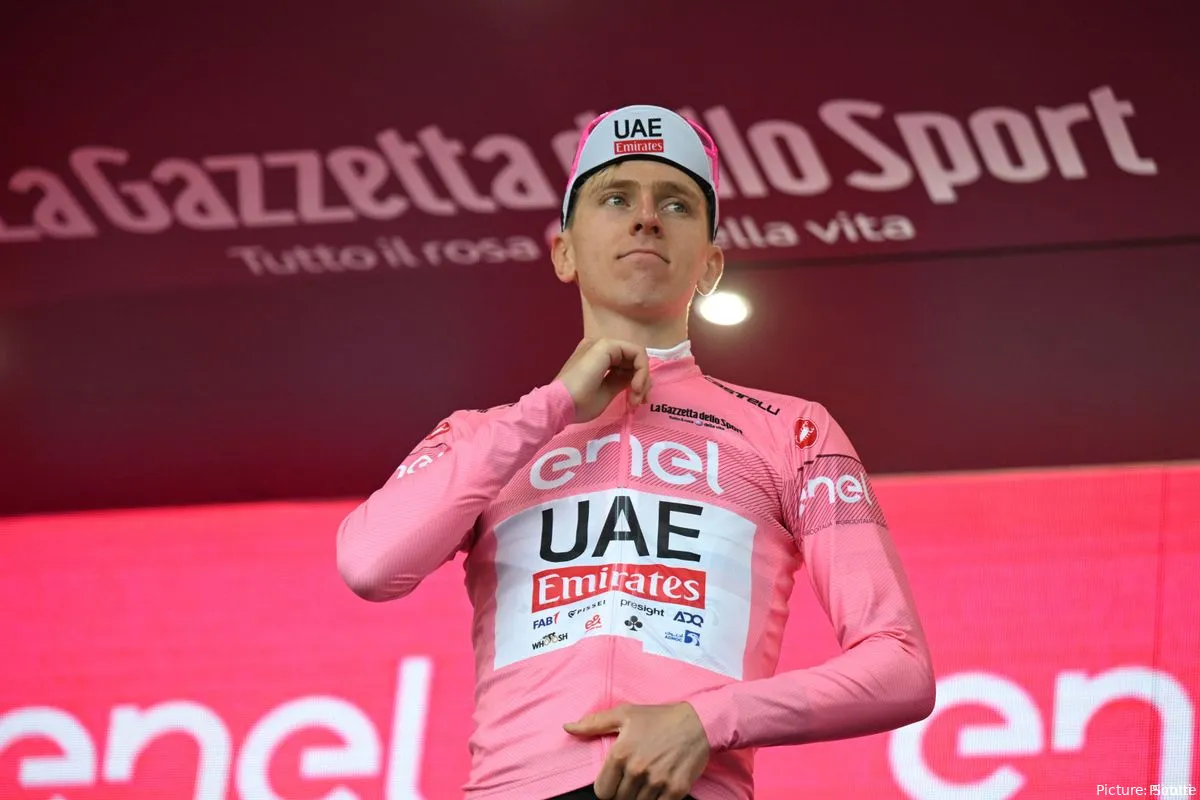
Pogacar won the maglia rosa on stage 2 in 2024 and never relinquished it
And that matters. Not all racing is created equal. A
tactically neutralised race between a bunch of evenly matched GC contenders
doesn’t automatically make for entertainment, even if they are separated by
seconds. In fact, it can lead to the kind of deadlock we saw during many
editions of the Tour in the Team Sky era, controlled, calculated, and dull as
dishwater. Riders like Chris Froome and Geraint Thomas were brilliant athletes,
but their style of racing, sitting behind domestiques, watching power numbers,
minimising risks, rarely thrilled the neutral fan the same way Pogacar’s
attacks do.
Pogacar is different. He rides like he’s unaware that racing
has been professionalised to within an inch of its life. Not since the era of
Merckx have we seen a GC man take the fight to the bigger, heavier classics men
on the cobbles, and we should appreciate that instead of calling it boring.
Read also
In an interview earlier this month with EFE, riders Luis
Ángel Maté and Andrey Amador voiced their frustration. “I'm sick of running
with Pogacar and having the same guy win every time. You see the watts they
move and you know the result,” said Mate. “These demonstrations take cycling
away from its origins.”
It’s a fair comment, especially coming from the peloton, as Pogacar’s
dominance can be demoralising for those trying to race against him. But let’s
not confuse professional frustration with a lack of entertainment. Pogacar wins
a lot, yes. In fact, he won 25 races in 2024 out of just 58 race days, that’s
absurd, and he’s already won seven times in 2025.
But ask yourself: do you remember how he won them? The solo
attacks, the relentless pace on the climbs, the fact that he does it all while
smiling?
Read also
Thomas Voeckler, speaking last December, expressed similar
doubts. “When he starts so far from the finish, behind it’s thrilling, but it’s
just for second place,” he said, comparing Pogacar’s dominance to Mathieu van
der Poel’s commanding ride at Paris-Roubaix. “Magnificent,” yes, but perhaps
lacking tension.
And still, I’d argue that the spectacle is the point. Yes,
it may be “just for second place,” but how many riders in history have
consistently forced the rest of the race to recalibrate around them? How many
make second place feel like victory? Eddy Merckx did. Fausto Coppi did. And
Tadej Pogacar does.
Think about other sports, sometimes you have to simply
appreciate greatness. What Max Verstappen can do in a dominant Red Bull could
be seen as boring, but really it is the perfect example of a truly special
talent at the peak of his powers. Or what about prime Barcelona, knocking it
around Manchester Untied in the Champions League final like they were amateurs?
No contest, yes, but no less enjoyable.
Read also
Would it really be better without the rider who redefines
what’s possible? Or is it simply that we, as fans, are still adjusting to
greatness?
So there’s the point of view that Pogacar makes races
better. Now, I will play devil’s advocate, and I will admit my opinion has
changed as the race has gone on. At the start of week two, the storyline
appeared simple enough: Primoz Roglic vs. Juan Ayuso, just like the bookies and
most analysts had predicted. But over the course of the past ten days, that
narrative has completely disintegrated.
Roglic, who has now crashed multiple times during this Giro,
never looked quite right. He was there, then he wasn’t. A crack on stage 15
suggested the beginning of the end, and stage 16 confirmed it. Another crash.
Another withdrawal. It’s become a sad but familiar pattern for Roglic, one of
the most decorated and entertaining riders of his generation, yet someone who
now seems to carry bad luck like a shadow.
Read also
Ayuso’s fall from contention has been more insidious. Since
a crash on the gravel roads of stage 9, he's steadily leaked time. UAE Team
Emirates – XRG insisted he was fine, but the gaps kept opening. That presented
a dilemma for the team: stick with the plan and back Ayuso, or pivot to the
rising force that is Isaac del Toro?
Of course, we now know that Juan Ayuso was forced to abandon, but that dilemma became the defining storyline of week two. Del
Toro, youthful and audacious, was climbing with calmness and courage, even as
Ayuso’s body language slowly turned grim. Yet UAE, ever cautious with their
hierarchy, refused to fully commit to the 21 year old. Their faith in Ayuso’s ‘experience’
over Del Toro’s untested endurance was evident, and perhaps costly.
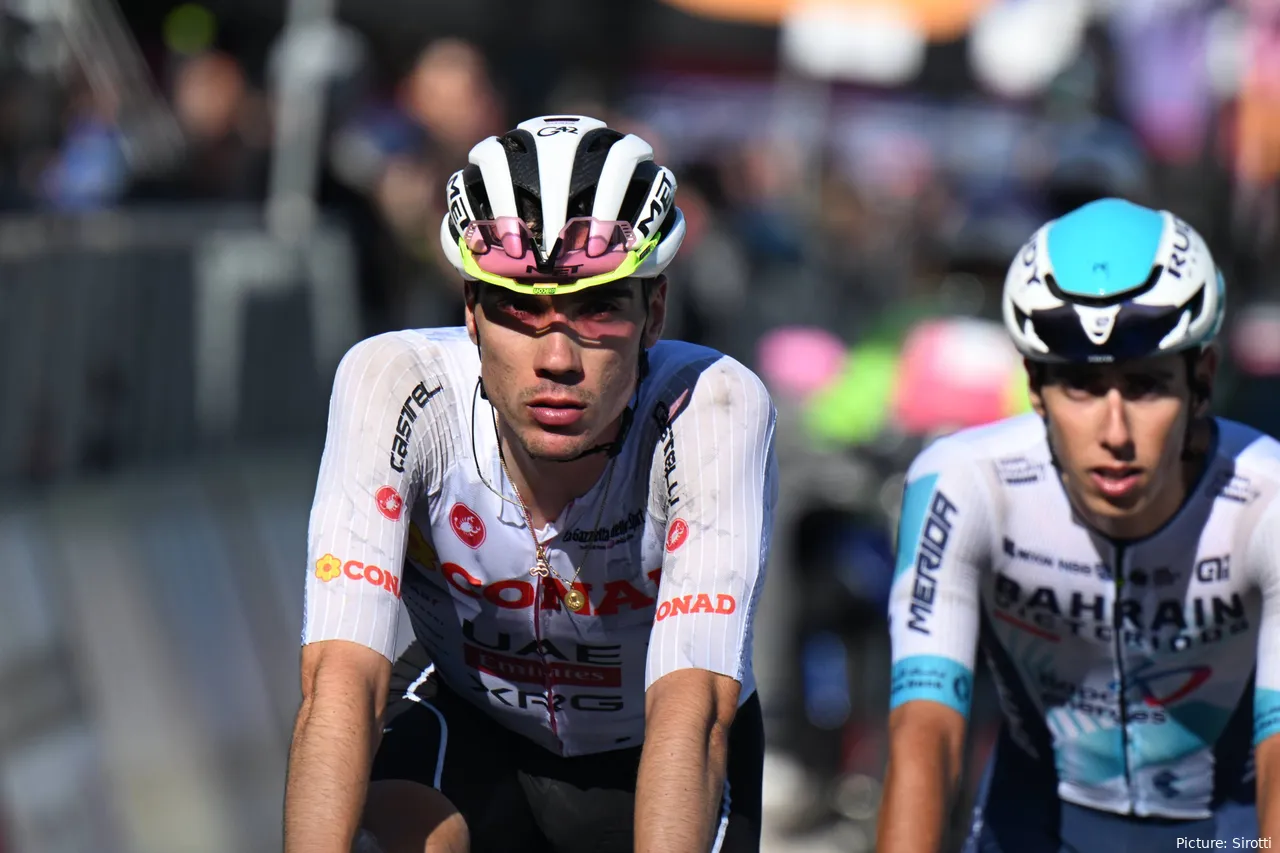
Juan Ayuso had a nightmare Giro
Then came stage 16, one of the most dramatic of the race so
far. Roglic crashed out, and then Ayuso cracked completely on the penultimate
climb and never looked interested in chasing back. Suddenly, the team’s problem
had seemingly solved itself: Ayuso was gone, and Del Toro was now the
undisputed leader.
Only, that illusion didn’t last long.
Del Toro, who had started the day with over a minute on
Simon Yates and more than two on Richard Carapaz, cracked himself on the final
climb to San Valentino. Not just a few seconds lost, a proper crack. Carapaz
attacked and disappeared up the road, Yates followed, and Del Toro could only
grimace and survive.
By the summit, the GC picture had been completely rewritten.
Del Toro still wears the pink jersey, but his lead after stage 16 was now just
26 seconds over Simon Yates, and 31 over Carapaz. The three of them are in a
virtual dead heat. Behind them, Derek Gee and Egan Bernal, neither of whom were
really considered potential pre-race winners, have been superb throughout the race.
Read also
And this, right here, is what makes the 2025 Giro d’Italia
so beautifully wild. This is a race that’s completely off-script. There’s no
stranglehold. No predictability. No
Jonas Vingegaard marking every move. No Tadej Pogacar ripping the race apart
and turning every mountain stage into a personal highlight reel.
Without them, the race has been allowed to breathe. To
unfold in unexpected ways. And yes, that means there have been cracks, crashes,
collapses, but also storylines. Bernal, once broken, now at the sharp end once again. Gee,
the perpetual underdog, still standing tall. Yates, resurgent. Carapaz, patient
and pouncing. Del Toro, vulnerable but superb nonetheless.
And we still don't know who will win after stage 19!
Read also
Last year, Tadej Pogacar won the pink jersey by nearly 10
minutes. It was a joke. Brilliant, but an absolute joke, given how far ahead he
was over the rest. After 16 stages, that margin covers 16 riders, all the way
down to Tom Pidcock.
Perhaps I am suffering from recency bias. Right now, if you
asked me, I would tell you that racing IS better without Pogacar, and the
genuine uncertainty about who is going to wear the Maglia rosa in Rome is
brilliant.
Read also
But, come July, perhaps my opinion will change again. We
know that the race, barring crashes, will won by either Tadej Pogacar or Jonas
Vingegaard (only Remco Evenepoel has an outside chance), but too many that is a
more exciting prospect than the unpredictability of the Giro. Let’s face it, it
is unlikely that we will ever see a more exciting stage than the 2022 Col du
Granon stage, where Vingegaard finally cracked Pogacar.
Now, I pose the question to you. Does Pogacar make racing
more or less exciting? Is there a definite answer? Should this even be a debate
in the first place? Vote in the poll below, and let us know your thoughts in
the comments section too!
claps 3visitors 3
6 Comments
Just in
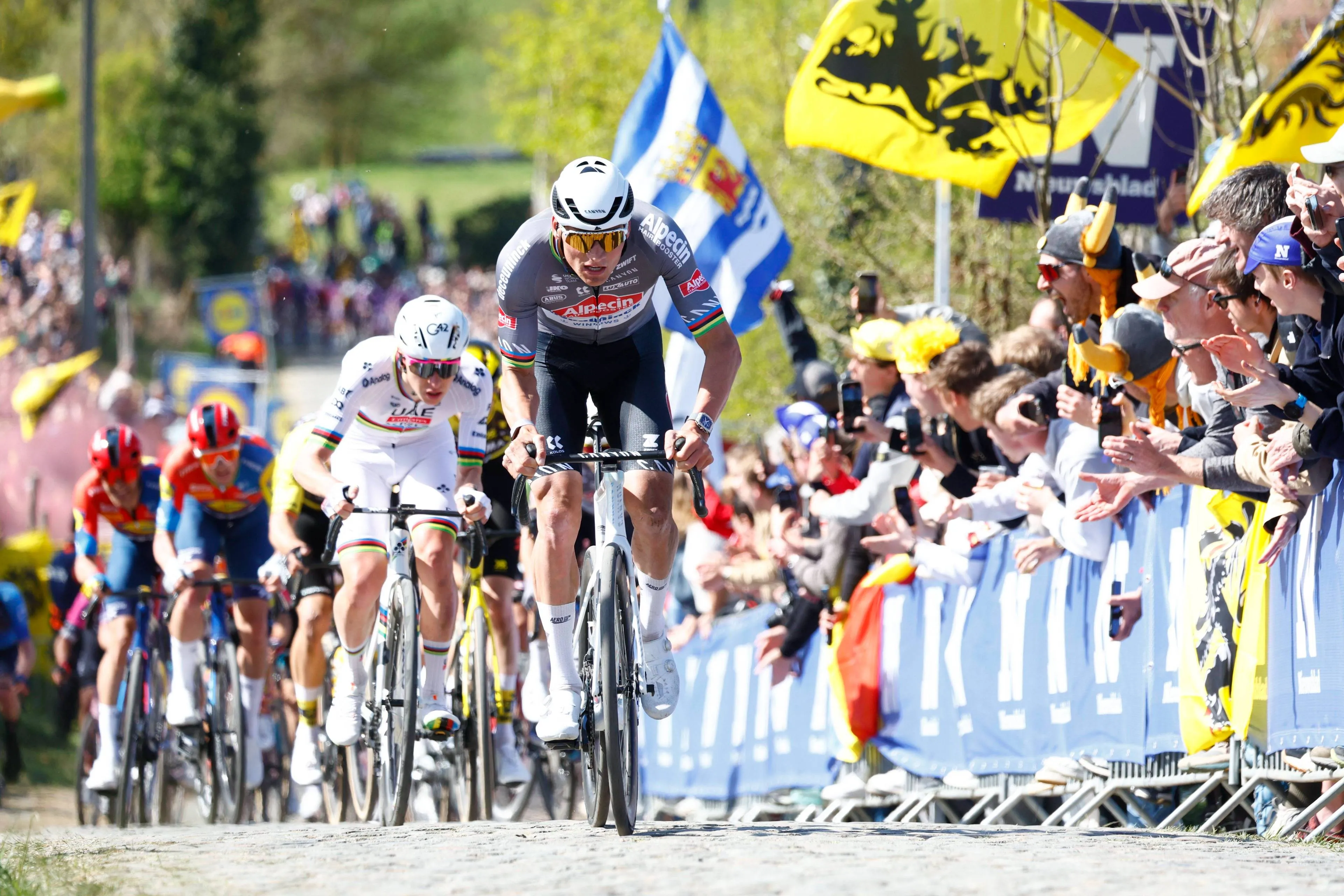
Subscribe to our Daily Newsletter today!
May 12, 11:09
0
Popular news
Latest comments
- What the chuff is a “moral winner” quite sure none of them would want a prize just for turning up .. only one winner Tadejslappers6614-06-2025
- Maria. I think riders will attack on the downhill sometimes. It’s up to every rider to descend within their limits. Some riders are more skilled descenders. Others have different risk tolerance. Tadej followed so clearly he believed the risk was worth it to stay with his rivals. And yes, racing downhill is dangerous.mobk14-06-2025
- Dangerous moves win races sometimes.awp14-06-2025
- That is not what the Wisma riders like Sep Kuss say. If you look at the average speed of the downturn it was normal for a route like that. The french rider Roman Bardet in front drove 1 minut faster downhill that the Wisma Team. It is the individual riders choice and responsibility not to drive faster than what he considers safe. Thus stop whining Maria.Jakob14-06-2025
- Yes time will tell. Jonas's training is scheduled so he is believed to peak late in the Tour - but I guess that goes for Tadej too. Jonas needs steeper and longer mountains to be at his best. The Tour de France will be more exiting than everJakob14-06-2025
- No, that's no the point, the movement was dangerous, for tadej AND for Visma riders. Do you think that is ok? DSs Visma have to maintain cold blood and not try to win risking riders safety.
 maria2024202414-06-2025
maria2024202414-06-2025 - If he follows what he considers a dangerous move then it’s not Visma putting him in danger it’s him deciding that the danger is worth it.mobk14-06-2025
- Kind of an insult to the current stars.Mistermaumau14-06-2025
- I couldn't watch the race, but I listen to Tadej saying that Visma put him in danger by descending, so sad... I hope VISMA doesn't despair and try to win with dangerous moves. Cycling is already dangerous enough.
 maria2024202414-06-2025
maria2024202414-06-2025 - This is professional bike race, they're paid to winZamorano14-06-2025
